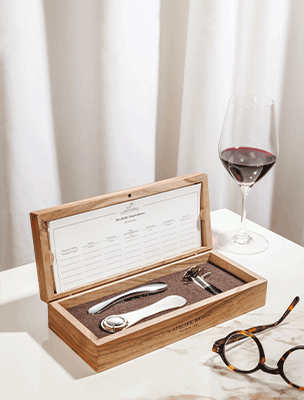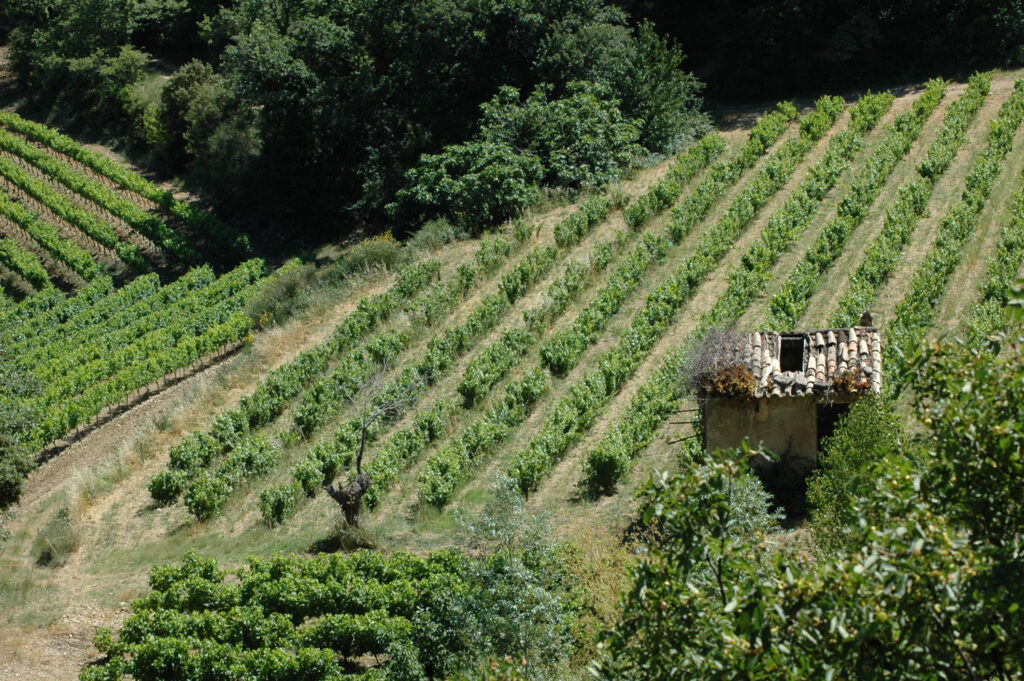
Oenophiles can’t get enough of organic wine! But how is it different from other wines? Does it keep or taste better? Alsace, Bordeaux, Burgundy, Champagne, Provence, Loire Valley, Corsica, Rhone Valley, Southwest France… Organic wine production is flourishing all over France and abroad. This short guide by L’Atelier du Vin answers the most frequently asked questions about organic wine. To find out more about wine and oenology in a fun and festive way, check out our bestselling Wine Quiz and Champagne Quiz.
Contents of the organic wine guide:
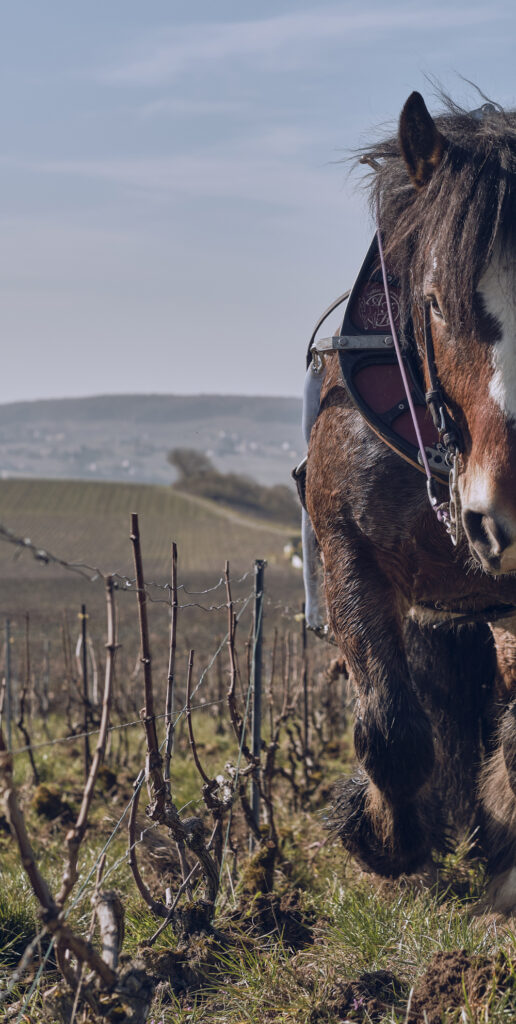
© Alexandre Couvreux
What Is Organic Wine?
Organic wine is wine that meets official European “Organic” label requirements (“Bio” in France), which take the environment and consumer health into consideration. More specifically, to be awarded this European label by an approved certification body, organic wine must be produced using organic viticulture (cultivation of vines and grapes) and organic vinification (transformation of grape must into alcohol).
- The grapes used to make organic wine must be organically grown. In France, organic grapes can be certified “AB” (Agriculture Biologique, an organic farming label).
- After harvesting, the methods, equipment, and ingredients used to make and bottle the wine must comply with the requirements of the European organic label or Ecocert.
In France, some organic wines may also be certified HVE (Haute Valeur Environnementale), Nature et Progrès, Biodyvin, Demeter, FNIVAB (Fédération Nationale Interprofessionnelle des Vins de l’Agriculture Biologique) or Vin Méthode Nature, whose criteria are even stricter than the Organic label.
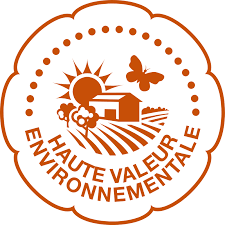
How can you tell if wine is organic?
An organic bottle of wine produced in Europe will have the Euroleaf logo on its label, or the French organic farming logo, “AB”. Unless there is a printing error, bottles without this distinctive logo are probably not organic.
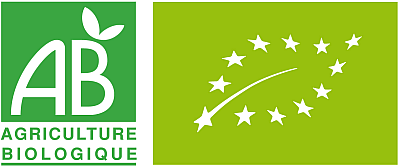
However, some winegrowers and vineyards practice sustainable winegrowing without applying for organic certification. Sulfite, industrial pesticides, and other synthetic chemicals are therefore not necessarily used in the winegrowing and winemaking process of non-organic wines.
What are the criteria to produce organic wine?
Legally speaking, organic wine must comply with the European Organic or French AB labels and be officially certified by an independent body. Organic viticulture prohibits the use of synthetic products such as pesticides, fungicides, herbicides, insecticides, and industrial chemical fertilizers in the vineyards.
As for organic winemaking, a wide range of techniques and substances are allowed, as long as they take consumers’ health into consideration and are eco-responsible. During the alcoholic fermentation process, for example, a maximum level of 0.1g of sulfite per liter for red wine and 0.15g per liter for white wine is tolerated.
Is Organic Wine Better?
Organic wine is better for the planet and your health but that doesn’t necessarily make it a grand cru or great vintage! Complying with organic wine production rules may produce good wine, but it doesn’t guarantee great wine. Grape varieties, terroirs and minerality, the quality of the grapes harvested, weather conditions, vinification method, blending, maturation, etc. The quality of red, white, and rosé wine depends on many factors, far beyond organic standards.
Does organic wine taste better?
Not all organic wines are great wines. It would be dishonest to say that grand crus vintages and award-winning cuvées are all organic. However, their low sulfite levels significantly reduce the headaches that can be caused by non-organic wines with high levels of sulfur dioxide.

Does organic wine keep longer?
There is no set rule when it comes to aging wine. Some organic wines will keep and improve over the years, while others turn sooner than expected. But this issue applies to non-organic wines too, whether they contain higher levels of sulfur or not.
It all depends on the storage conditions in your wine cellar. Even the best aging wine won’t withstand poor conditions. But if an organic wine has been produced with care, in excellent conditions, using the right grape varieties, and on a terroir renowned for its aging potential, why should it age less well than another? If you’re unsure about an organic or non-organic wine’s aging potential, it’s best to find out more about the winery and ask a wine merchant, sommelier, or oenologist for advice.
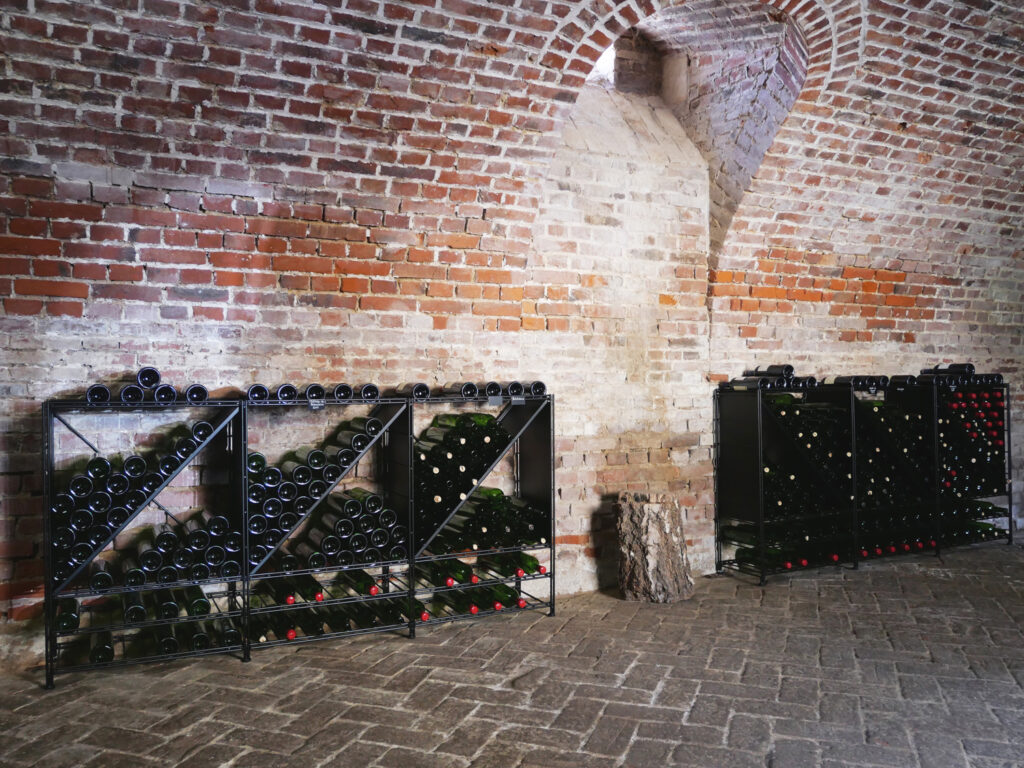
© Architecture Intérieure du Vin | Miléna Latil
What Is the difference between organic, natural, biodynamic, and vegan wine?
The criteria to define organic, natural, biodynamic, and vegan wines are not exactly the same. Each of these types of wine must comply with a specific set of rules in terms of viticulture and winemaking. Organic wine can be biodynamic, natural, or vegan if it is produced in compliance with these different requirements. Organic wine must at the very least meet European organic agriculture standards.
For example, a winegrower can apply for AB certification for viticulture and the Nature et Progrès label for vinification, which requires the use of wild yeast (found naturally in the soil) for alcoholic fermentation and fining with clay, but not obtain the Demeter or Biodyvin certification because, although tolerated by the organic label, their sulfur levels are too high for biodynamic viticulture.
What is biodynamic wine?
Biodynamic wine is certified by the Demeter or Biodyvin labels. The criteria are stricter and more extensive than the organic label. In particular, the grapes, the soil, and the vineyard must be cultivated and managed following biodynamic principles. The maximum level of sulfites is also limited to 0,07 to 0,09g per liter.
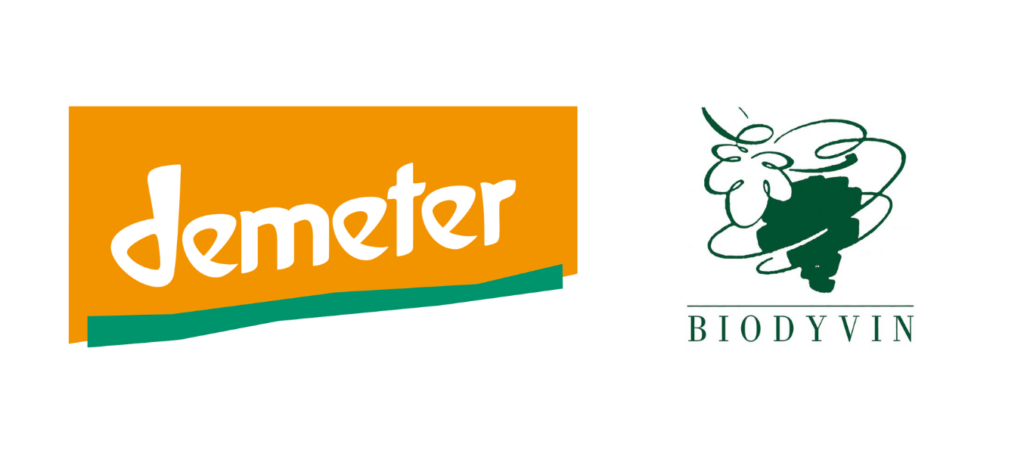
For example, this holistic approach to agriculture requires the use of natural inputs for fertilization and soil treatment. Biodynamics also takes into account cosmic rhythms and, more specifically, the influence of the moon on wine. According to the lunar calendar, root, leaf, flower, or fruit days define when to plant, prune, and harvest, as well as the various winemaking stages.
What is natural wine?
There is no official label for producing natural wines. The recent Vin Méthode Nature label in France is the closest recognized certification. Natural wine production uses no synthetic chemicals (no inputs, synthetic pesticides, or industrial additives), filtering, thermoregulation, or clarification. The maximum level of sulfur dioxide is 0.03 to 0.04 g per liter for natural wines, but some “sulfur-free wines” contain no added sulfur or sulfites, even in minute quantities.
What is vegan wine?
This distinction may come as a surprise since wine is made from the alcoholic fermentation of grape juice. However, not all wines are vegan. The “vegan wine” appellation prohibits the use of egg white for fining during the winemaking process, which is an ancestral and common practice used by winemakers to make a red wine less tannic or a white wine lighter. Animal power (horses, oxen) to pull any agricultural equipment in the vineyard is also not allowed, as this is considered a form of animal abuse.


